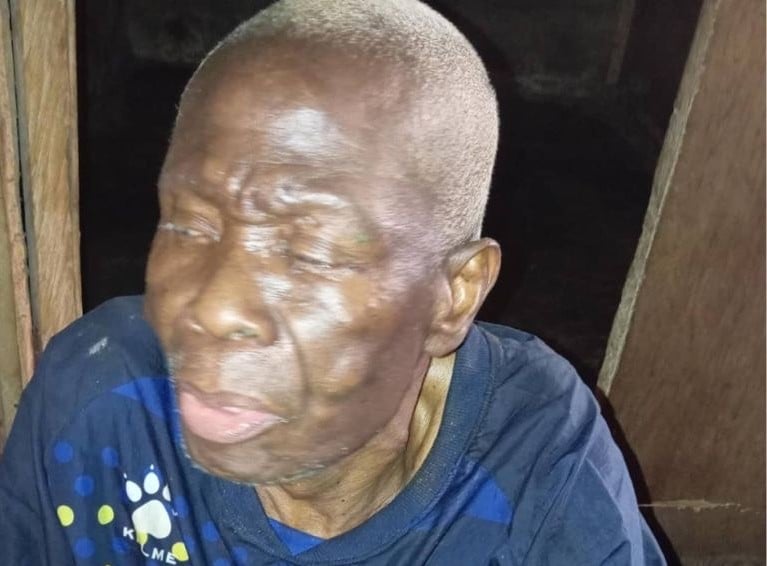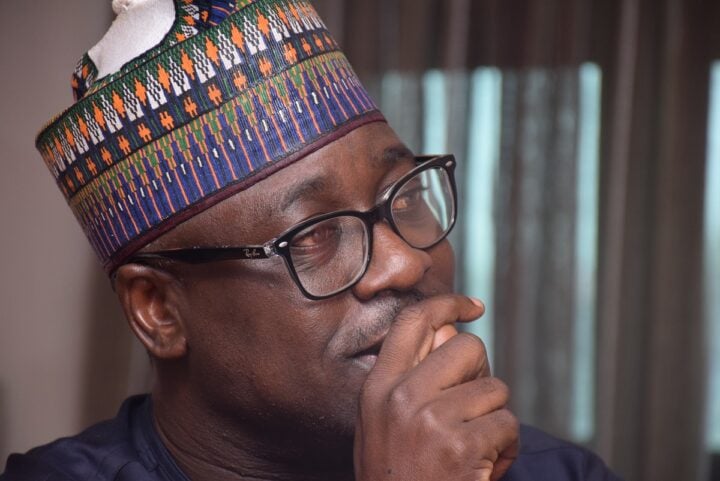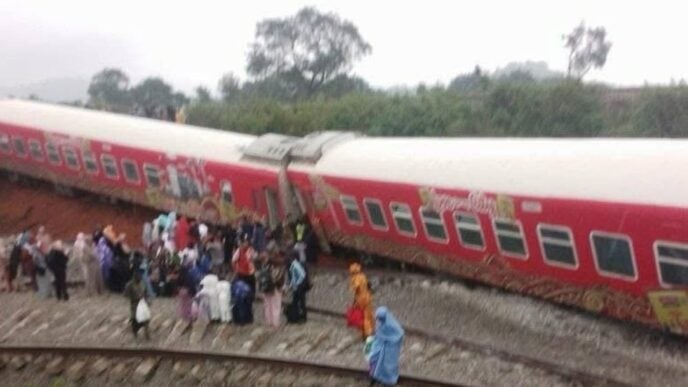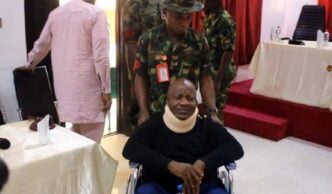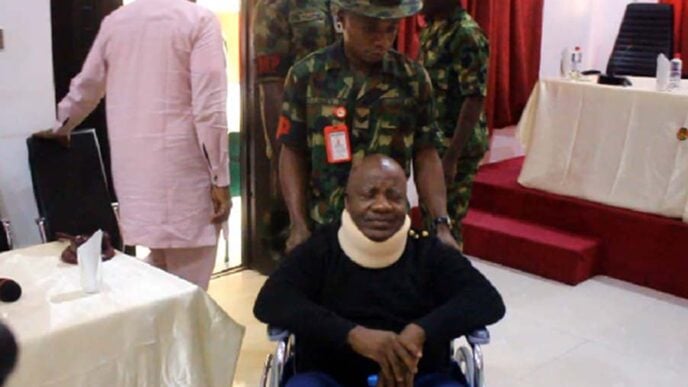Sergeant Ojo
BY CALEB IJIOMA
In May 1990, Samuel Ojo joined the Nigeria Police Force (NPF). His career began at the force headquarters, Obalende, Lagos state. A few years later, Ojo, a sergeant, was transferred to the Morogbo Police Station in the Badagry area of the state. That was where the tragic chapter of his life began.
In December 2009, three days after the Christmas celebration in Lagos, an incident occurred in the afternoon at the Ibiye bus stop, Badagry. Thugs had attacked a police officer, and then the DPO of the Morogbo police station, getting wind of the situation, assigned Ojo, alongside four officers, to be sent as reinforcement, but this didn’t end well.
“On getting there, it was a festive period, and people were everywhere. He just heard a gunshot sound, and looking behind him, he found a civilian covered in blood. So, one of those thugs fired at my dad, but the bullet hit a passerby identified as Pastor Olusegun Olatunde. When the thug wanted to shoot again, my dad had to respond, and the thug eventually died,” Semasa Ojo, his first son, recounted.
Advertisement
That single incident defined the remaining years of Sergeant Ojo’s life. His son said his police file was tagged as a murder case and was thereafter sent to the State Criminal Investigation Department (SCID), Panti. Ojo was arraigned and remanded in Panti for six months.
A POLICE OFFICER’S ORDEAL
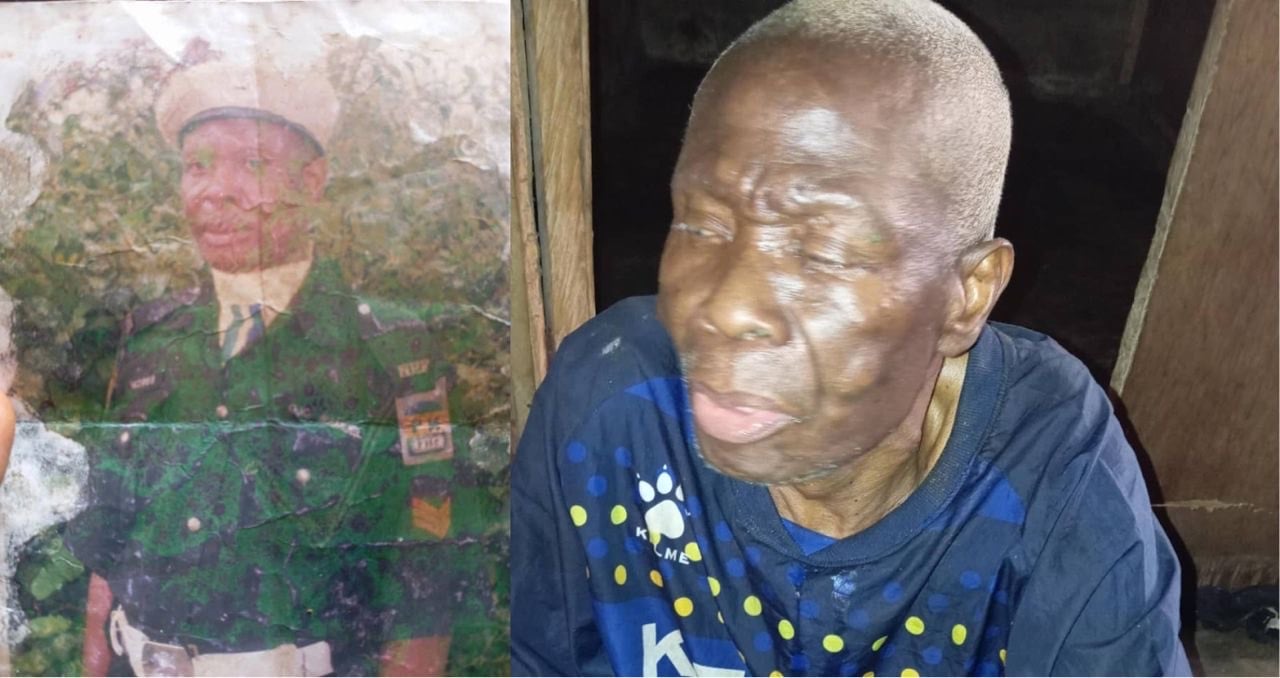
Fast forward to 2010, Ojo was released on June 23 after spending six hellish months in Panti. Semasa said his father was, however, found not guilty. Upon returning home, he was dismissed from the NPF, and his salary was withheld.
Advertisement
Semasa said the case was later transferred to the Lagos State Directorate of Public Prosecutions (DPP) for recommendations.
“My dad said it clearly that he did nothing wrong, and he’s waiting for DPP’s advice,” Semasa said.
“He went to DPP. He even hired a lawyer then. He lost contact with the lawyer when he misplaced his phone and didn’t have the money to hire another one. I once took my parents to Alausa because of this matter. The police force never looked into the case.”
Even after Olusegun, the pastor who was injured at the scene, testified that it was the thug who shot at Ojo first, 15 years passed without the DPP’s advice. In 2023, the Committee for the Defence of Human Rights (CDHR) wrote to the Police Service Commission, appealing for Ojo to be reinstated and for his salaries withheld since 2010 to be paid.
Advertisement
According to a document seen by this reporter, the CDHR stated that the IGP did not respond to its request despite repeated efforts, hence the need to reach out to the commission.
This reporter reached out to Kehinde Adeoye, the Lagos State CDHR chairman, who was in charge of Ojo’s case. He confirmed that efforts were made to reach out to the PSC, but he got no response.
“We contacted the Police Service Commission through the PPRO of Lagos Police Command. Since then, what we were told was that the Police Service Commission was being reconstituted, and to date, no response from them,” he said.
Adeoye said he wants the police to pay all of Ojo’s entitlements, “including all his salary arrears since the time he was stopped till date, to his family.”
Advertisement
Semasa noted that when no response came from the Police Service Commission, he then reached out to Benjamin Hundeyin, the Lagos state Police PRO, who consistently assured him that his father’s case would be attended to.
“Hundeyin said the board that will decide on the case hadn’t been reconstituted until late last year, when he told me it had been reconstituted and would likely sit on the case soon,” he said.
Advertisement
Semasa showed this reporter several text messages from Hundeyin assuring him that the case would be handled, but years have passed, and Sergeant Ojo’s case has been abandoned.
His health only worsened. According to Semasa, his father developed post-traumatic stress disorder (PTSD) after he was released from detention, which then degenerated into dementia. Ojo breathed his last on July 27.
Advertisement
If Ojo had not been dismissed, he would have retired in May 2015. His monthly salary before dismissal was N50,000. He would have accumulated 180 months between June 2010 and May 2025. Within the period that spanned across 15 years, he would have gained N9,000,000 basic salary if he had not enjoyed any promotion.
This excludes his pension and retirement gratuity of over N2 million.
Advertisement
This reporter reached out to Hundeyin, but repeated calls and messages were left unanswered. Also, the PSC was contacted via the number made available on their website, but while one number wasn’t accessible, the other one was, but unanswered.
Also, efforts were made to reach out to the commission via X, but there was no response.
Semase said his father’s ordeal breached relevant Nigerian law. He said his act of self-defence was protected under Section 33 of the 1999 Constitution of Nigeria, as amended. While the law states that every person has the right to life and no one shall be deprived of their life intentionally, it also permits self-defence, which is not a violation.
Also, the Criminal Code is clear on matters of self-defence: Section 286 permits the use of reasonable force against an unlawful attack, while Section 287 goes further, allowing a person to use even deadly force if faced with an assault that threatens death or grievous harm. This is also contained in the Police Reviewed FORCE ORDER 237.
According to his son, when the incident happened, Ojo was confronted with precisely such a threat. His decision to return fire was not an act of recklessness but one of survival — a response the law itself recognises as lawful. He said instead of being shielded by these provisions, his father was cast aside and branded a criminal.
WITNESS NARRATES 2009 EVENT
Olusegun, the pastor who witnessed the 2009 shooting, recounted how the incident unfolded. Semasa had gone to interview him after his father’s death. At the time of the incident, Olusegun was the officiating pastor at CAC Ibiye.
According to the video interview seen by this reporter, he explained that he was on his way to a meeting at Magbon, a bus stop along the Badagry Expressway, but had alighted at Ibiye, where he was struck by a bullet.
“When I got down from the motorcycle, I saw a crowd of people running away from the policemen. I also saw some area boys confronting and attacking the policemen. Then, a bullet hit me from the right side. Ojo came to carry and rescue me. While I was there, one of the area boys who had been attacking the policemen tried to run away, but he was shot down right in my presence,” he said.
“I was taken to the hospital while the policemen were holding a meeting at the spot where I had gone to meet them. They didn’t see the doctor, so they planned to take me to Badagry. However, one of the policemen said that if they took me to Badagry, I might die before we got there. He then directed that I be taken to their station because there was a hospital opposite it. I was rushed there, and that was where I received treatment.”
A few weeks later, Olusegun was invited to Panti, where he testified that Ojo did not fire the shot that hit him, adding that “he had only tried to help me.” At the time, Ojo was already in Panti’s custody.
Olusegun said he felt deeply saddened when he learned that Ojo had been dismissed.
For 15 years, Ojo waited in vain for feedback from the DPP. His faith in the force he once served slowly withered as the years slipped by. He died still waiting.
According to his son, the father of six lost his source of income because he defended himself against an armed attacker. He survived that day, but the NPF ultimately took his livelihood.
“Life has been unbearable for us, but here we are. He’s dead,” Semasa said.
